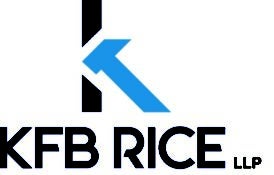Employment/Payroll Taxes And Trust Fund Penalty Assessment
940 And 941 Taxes
It is easy to get behind in payroll taxes. Situations and circumstances can overcome taxpayers. However, good intentions cause disastrous consequence. You cannot say to yourself, “We know that we cannot pay the payroll taxes this month, because we must pay necessary business costs, but we will make it up next quarter.”
You are stealing from the government, and it will close your business. It will move quickly to prosecute you to the fullest extent of the law and assess you personally for all of the taxes that your company did not pay.
Payroll (941) Taxes Form 941: The Employer’s Quarterly Federal Tax Form is the form used by employers to report employment taxes, withholding amounts, deposit amounts, and amounts due to the IRS. Form 940 is the end of the year employment tax.
Form 941 payroll tax issues result from either not filing a required payroll tax form on time or not filing it at all. Moreover, 941 payroll tax problems result from failing to make the required payroll tax deposits on time and in the correct amounts. The most common payroll taxes are for the following:
- Social Security tax
- Medicare tax
- Federal income tax
- Federal unemployment tax
Delinquent Payroll (941) taxes are further increased by interest and penalty charges, which can equal 100 percent of the actual tax due. Types of penalty and interest charges are:
- Penalty for filing a late return, forms 941 or 940
- Penalty for making a late deposit or failing to make one
- Interest on the delinquent taxes and interest on the penalties
- Assessment of penalties
Trust Fund Penalty Assessment
View our Trust Fund Penalty Assessment page to learn more about this topic.
How We Help You
We have successfully represented many businesses, both multimillion-dollar and small family business, that failed to make their employment tax payments. We have successfully eliminated the trust fund penalty for our clients and intervened to keep their businesses open by utilizing several of the available IRS plans.
Consult an experienced tax attorney immediately. Do not ignore the payroll tax problems of your company or the company for whom you are an officer, director or the responsible payroll person. Doing nothing makes the problem grow exponentially.
Time is critical. There are IRS deadlines which must be met — or you could lose important IRS rights, money or property.
If you are being audited by the Internal Revenue Service, Franchise Tax Board or any other state or local tax authority, contact the tax attorneys at the David Lee Rice, A Professional Law Corporation, at (310) 517-8600 immediately for a consultation.

